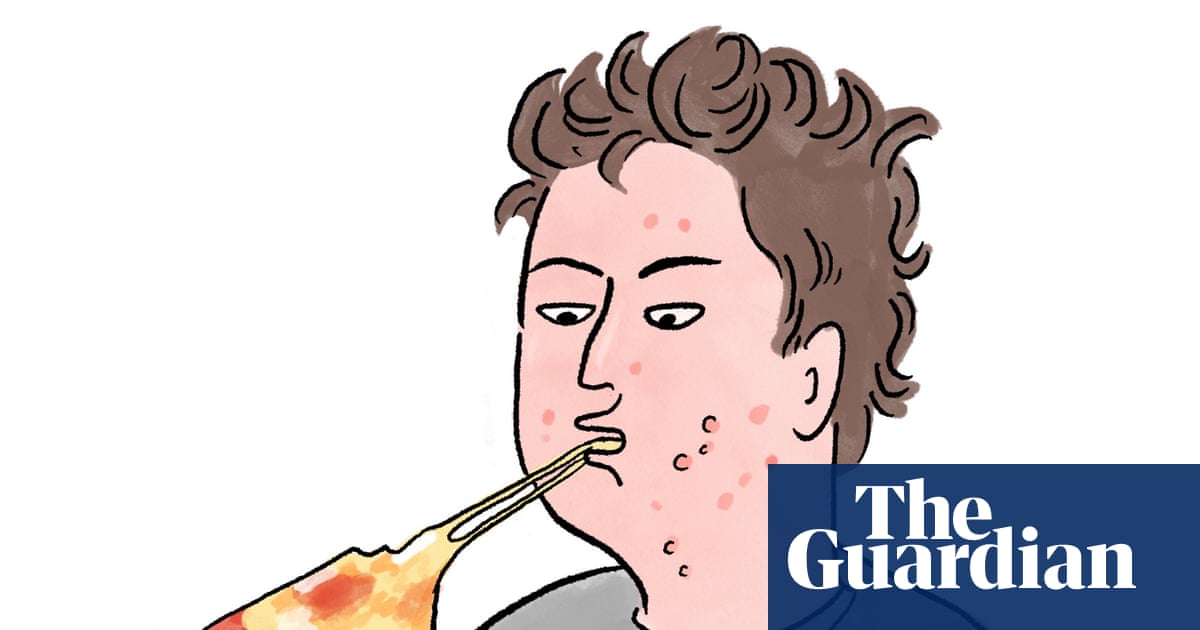Those who are acne-prone often have oilier skin, which leads some to believe that greasy foods such as pizza or burgers cause breakouts. “People think that eating greasy food increases oil on the skin, which leads to acne,” says Dr Rosalind Simpson, a medical dermatologist at the University of Nottingham. “But that’s a misconception. The oil on your skin – sebum from pores – is mostly influenced by hormones and genetics.”
The primary cause of acne is an increase in androgens, or male sex hormones, which happens in men and women at puberty. This triggers an increase in production of sebum, and mixed with dead skin cells, this can block the pores. The oily environment allows bacteria (Propionibacterium acnes), which are naturally present on the skin, to thrive, leading to inflammation. Other hormone shifts, such as those caused by polycystic ovary syndrome or progesterone-only contraception, can also be to blame.
People try to change their diet to treat acne, but restrictive diets can be harmful, especially for teens
Environmental factors do play a role, says Simpson. And though this doesn’t include greasy food consumption, it could include our stress levels and our diet in a wider sense.
Acne has become more widespread over the past century. Some believe the rise could be linked to an increase in high glycaemic index foods, such as simple carbohydrates and sugary treats, though Simpson stresses that nothing is certain. “There’s emerging evidence that refined sugars may contribute,” she says, explaining that researchers are exploring how gut health is linked to skin health.
If you’re dealing with acne, and self‑management with gentle, soap-free cleansers and moisturisers hasn’t helped, it’s best to consult a doctor early. “People try to change their diet to treat acne, but restrictive diets can be harmful, especially for teens, unless done under medical supervision,” says Simpson.
